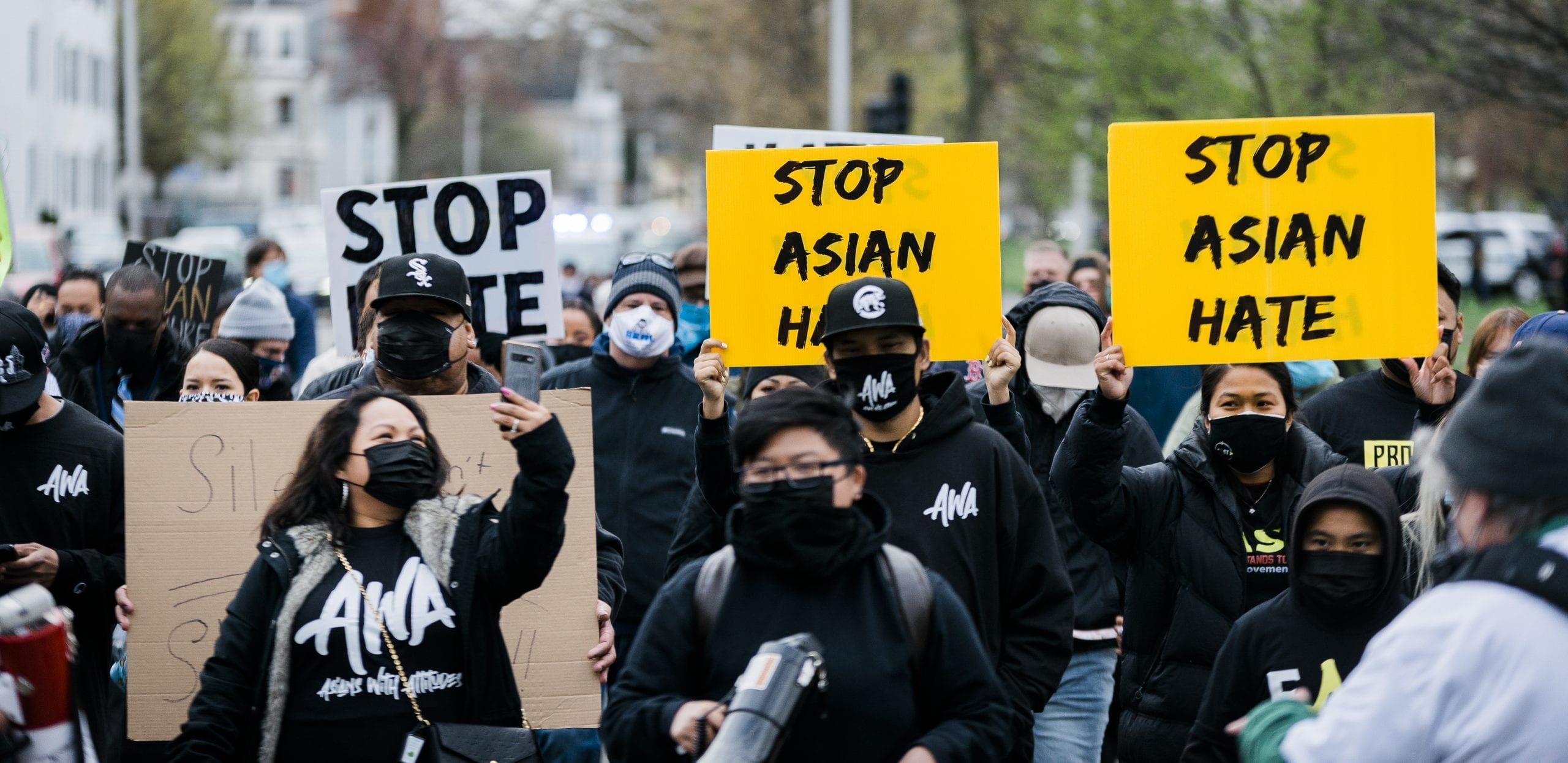LYNN — More than 100 people gathered at the Frederick Douglass Bandstand Saturday afternoon to demand local change in response to a nation-wide rise in anti-Asian violence during the COVID-19 pandemic.
Organized by nonprofit community-building group Diverse People United, the rally was just one of hundreds held across the country in recent weeks.
“It’s an invisible pandemic,” said Helen Li, whose daughter, Lily Li-Nagy, 6, was there to open the gathering with a reading of her poem, “The Shape of Peace, Love, and Unity.” “People often avoid (the issue) and don’t talk about it.”
In March, the Center for the Study of Hate and Extremism at California State University released data showing that hate crimes against Asian Americans rose 149 percent between 2019 and 2020. Another organization, Stop AAPI (Asian American and Pacific Islander) Hate, reported that roughly 3,800 “hateful incidents” — which are not limited to crimes — were committed against Asian Americans in the last 12 months.
Following a number of recent high-profile attacks, including last month’s shooting in Atlanta, Ga., that left eight people dead, including six Asian women, human rights groups have come forward to demand policy changes that would make it easier to label violence against Asian-Americans as hate crimes.
Representatives for Diverse People United said that by hosting Saturday’s rally, they hoped to center Asian and Asian-American voices in the fight to demand accountability for anti-Asian violence.
“Building on last summer’s successful rallies to bring attention to the issues of police brutality and civil rights violations, and to demand change through the Occupy Wyoma Square protest, DPU stands in solidarity with our Asian and Asian-American communities,” a press release from the organization read. “The rise in anti-Asian and Asian-American hate crimes and the silence of local media and local authorities is unacceptable and are not representative of the people of Lynn and our North Shore neighbors. We want better, we deserve better, and we will do better.”
To address the root of the problem directly, Li, a former teacher, said she wants to see more Asian-American history incorporated into school curriculums.
By shedding light on stories of Asian-Americans and other communities of color, she said, younger generations will have better context for navigating complex cultural situations.
“The scariest thing is to have teachers in classrooms enabling bullying and discrimination when no one is watching. There are incidents on the playground where kids will say to other kids ‘are you from China? Do you have the virus?’ (They don’t) understand, and they aren’t able to appreciate where we come from,” Li said. “Not many people understand Asian-American history and the struggles.
“If you trace back to (Chinese) railroad workers (in the United States) and the Chinese Exclusion Act, it’s a lot of pain.”
Li added she was proud of her young daughter for having the courage to read her poem about the importance of love in front of a large crowd of allies and government officials.
“She’s using her voice. Everyone has a voice,” she said. “I just wish people in the system would do something. I hope the policymakers and people who can make a difference will listen to that voice.”
Elyse Carmosino can be reached at [email protected]

